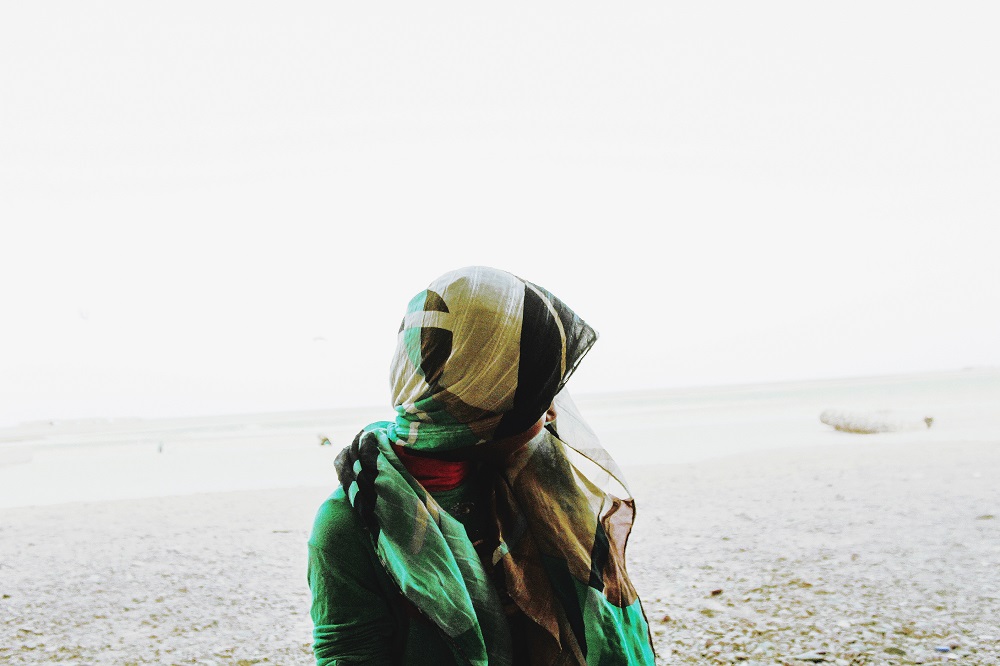Clothes don’t dehumanise Muslim women, people do

Yasmin Begum
In an effort to gain publicity for his increasingly irrelevant party, UKIP’s newly elected leader in the Assembly Gareth Bennett, celebrated his new role by launching a racist and sexist attack against Muslim women last week. Following on from Boris Johnson’s gendered Islamophobia, Bennett jumped on the band wagon to comment that Muslim women who wear niqabs and burqas are part of an “alien culture” and they look like “medieval apparitions”. Let’s hope nobody showed him the Gorsedd of the Bards last week at the Eisteddfod, in his stomping ground of Cardiff, less it induces cognitive dissonance.
His comments follow ex-Foreign Secretary Boris Johnson’s recent newspaper article that claimed women in burqas look like bank robbers and/or post boxes and he refused to offer an apology: clearly a pound shop Enoch Powell. Theresa May subsequently called for Johnson to apologise: you know it’s bad when the Prime Minister, who was the Home Secretary while UKBA systematically deported Caribbean elders, wants you to apologise for your racism.
First Minister and head of Welsh Labour Carwyn Jones later both denounced Johnson and Bennett for racism, accusing them of attacking Muslim women for their own political advantage, pointing out that these comments will directly lead to a rise in hate crime against visibly Muslim women in Wales. Hate crime in Wales has been steadily increasing, with most regions reporting a sharp rise after the Brexit vote.
In 2011, 1.5% of the Welsh public self-identified as having a Muslim background and roughly half of those people are women. Welsh Muslim women make up 0.75%of people in Wales, the amount who practice hijab smaller and the percentage of Muslim women who practice niqab and burqa even smaller still. Could this be, as Gayatri Spivak famously said: “the white man saving brown women from the brown men?”
Clothes do not dehumanise Muslim women. People dehumanise Muslim women. It’s evident in Gareth Bennett’s comments, and it’s evident in the compounding different oppressions Muslim women have experienced in Wales like the BME pay gap (the overwhelming majority of Muslim women in Wales are black and minority ethnic), the gender pay gap and the faith gap. In 2015, the Equality Human Rights Commission found that Muslims have the lowest employment of any faith group in Wales. I wonder why Gareth Bennett thinks that clothes oppress Muslim women as opposed to the imperialist, white supremacist, capitalist, patriarchy that sees me less likely to be hired than a white man merely for having a BME name in modern-day Wales.
This has everything to do with colonialism, with gender, and with race. After all, discrimination on the grounds of race was a core mode of control during colonialism. The burqa is a garment indigenous to Afghanistan, Pakistan and other parts of central Asia, and Pakistan was once part of “British India”: the largest colony of the British Empire, the largest Empire the world has ever seen which, technically speaking, has never ended. Bennett’s words are not divorced from the colonial history that has directly preceded the long-term settlement of Muslim BME diaspora groups.
Muslims have been in Wales for hundreds of years. Muslims played a vital role in the construction and culture of modern-day Wales. Albeit, I ought not to buy into good immigrant/bad immigrant and good Muslim/Bad Muslim dichotomies. We can acknowledge that racism is bad, sexism is bad and Bennet’s comments are a ploy to grab headlines in a climate where his party is diminishing on the British and Welsh political stage. Bennett plays political football with the lived reality of Muslim women. After all, Muslim women comprise less than 1% of people in Wales. There’s an assumption that Muslim women won’t speak truth to power but that’s where he’s wrong. History has always taught us that those on the far right-wing spectrum are on the wrong side of history. Wales must look forward to its future, and not backwards to the innately racialised politics of the British Empire. Let’s hope Bennett and his party, like so many others, fade into the distance to become ossified relics of a bygone era.
Support our Nation today
For the price of a cup of coffee a month you can help us create an independent, not-for-profit, national news service for the people of Wales, by the people of Wales.





